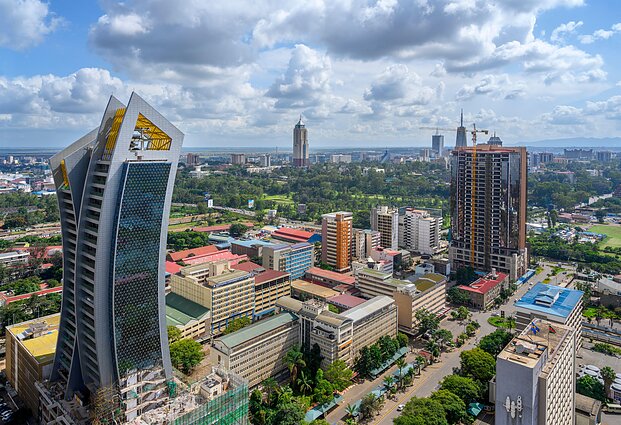
LRT.lt reports that in recent years, more and more Lithuanian companies have been expanding to Africa. The continent offers not only a growing market but also a greater supply of workers than Lithuania, businesses say.

Lithuania’s financial technology company Eleving Group has recently established a branch in Kenya, East Africa. “It is one of the most stable and democratic countries in the region. It has no major conflicts either within the country or with its neighbours,” Domas Mineikis, head of Eleving Group’s Kenya branch, told LRT Radio. He said that most companies entering the East African market settle in the Kenyan capital of Nairobi. Eleving Group currently employs about 900 people in Kenya, including six Lithuanians, several Latvians, an Estonian and a Belarusian.
However, hiring qualified IT specialists in Africa is a challenge, Mineikis notes. “It is quite difficult for us to find good data analysts and IT specialists in the Kenyan market. We are looking for such people in Europe,” he says.

Lukas Ivanauskas, an analyst at the AfriKO research centre, says that Lithuanian businesses are now looking to become part of the growing African economy. “By 2050, the African continent will account for a quarter of the world’s population, and it will be increasingly economically powerful. It is a growing market, and, naturally, Lithuania businesses are looking at it,” said Ivanauskas.
According to Mineikis, Lithuanians in Kenya work not only at Lithuanian companies but also at other international firms that expand in Africa. “There are Lithuanians who work for Microsoft, for the World Bank. They also live in Nairobi and work in non-Lithuanian, non-Baltic companies,” he says.
Ivanauskas also points out that there are Lithuanian companies operating in different regions of Africa. For example, a software development company TeleSoftas has recently opened an office in Abuja, Nigeria. “We see a fast-growing IT sector in Lithuania, and companies are competing for employees. We cannot all be programmers and data analysts in Lithuania, and they need that talent. To solve this problem, they decided to open an office in Abuja and recruit locally,” Ivanauskas noted.
Last autumn Šarūnas Putrius, the head of TeleSoftas, told LRT Radio that the supply of workers in Africa is much higher than in Lithuania. “In Lithuania, nowadays, if you want to find a good specialist and hire him, you have to look for him, invite him, offer him something. But in Nigeria, you have to choose from a large number of applicants. The processes are different. If Lithuania is an employee’s market, Nigeria is still an employer’s market,” he said.
According to Jane Odonwodo, a talent recruitment specialist at TeleSoftas in Nigeria, working for a Lithuanian company is unusual. “There are 11 of us working here. The feeling is different, there was a lot to learn and understand about cultural differences, but we feel great. All my Lithuanian colleagues are open-minded, not afraid to make mistakes, patient. We are also patient. It’s an interesting relationship,” she says.
Mineikis says that one of the main differences between Lithuania and the African countries is the tax system. “In Africa, businesses, especially larger businesses, are usually taxed more than in Europe. For example, in Kenya, the corporate tax is 30 percent. It is difficult for a country to collect taxes from every citizen because a large part of the economy is still in shadow. But on the business side, the environment is stable,” he explains.
According to Ivanauskas, the EU, as well as Lithuanian businesses, have a positive attitude towards cooperation with African countries. “Since 2017, the EU has announced a new turn towards partnership with African countries that is not based on a donor-recipient relationship, as in the past, but on a real partnership.”





























